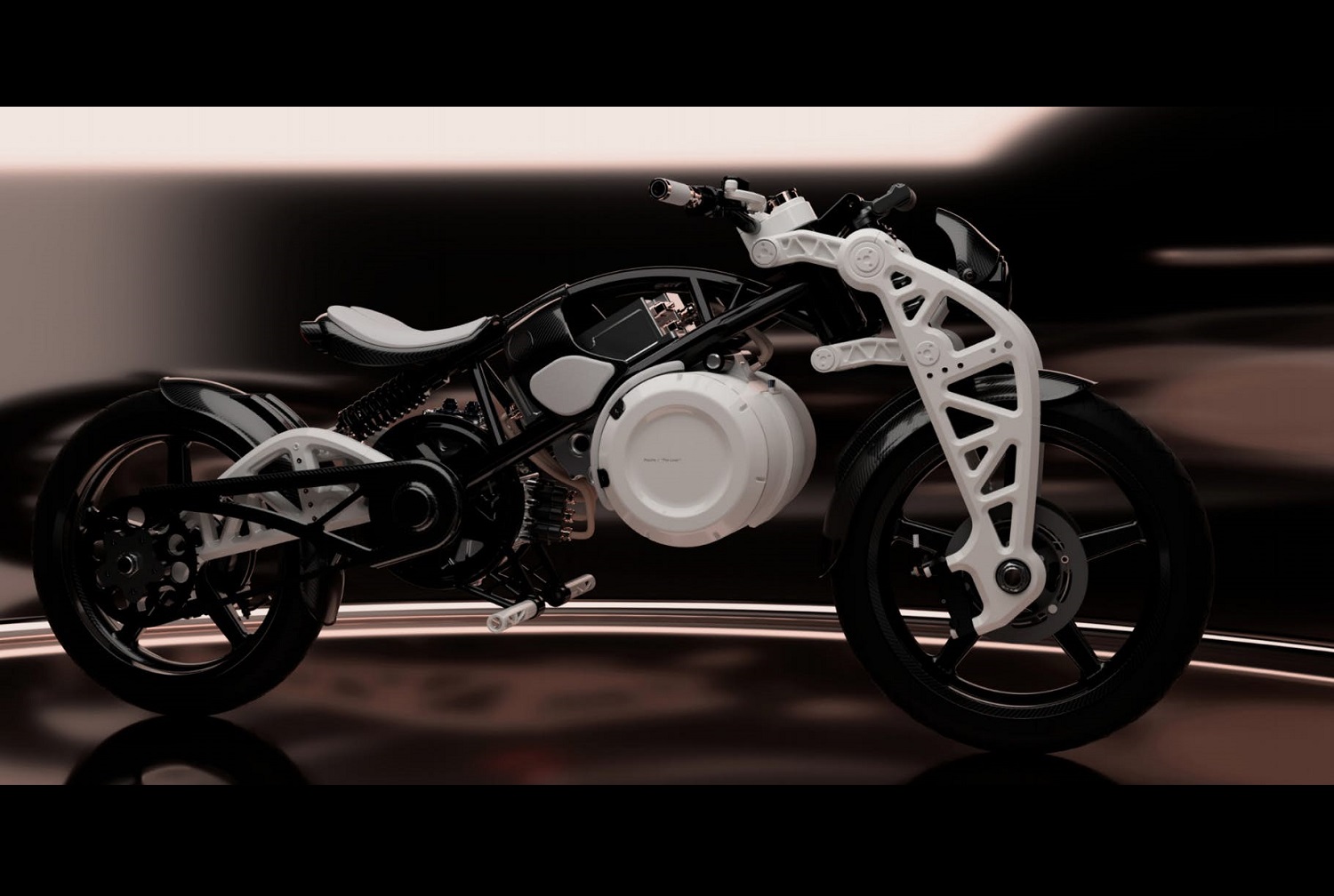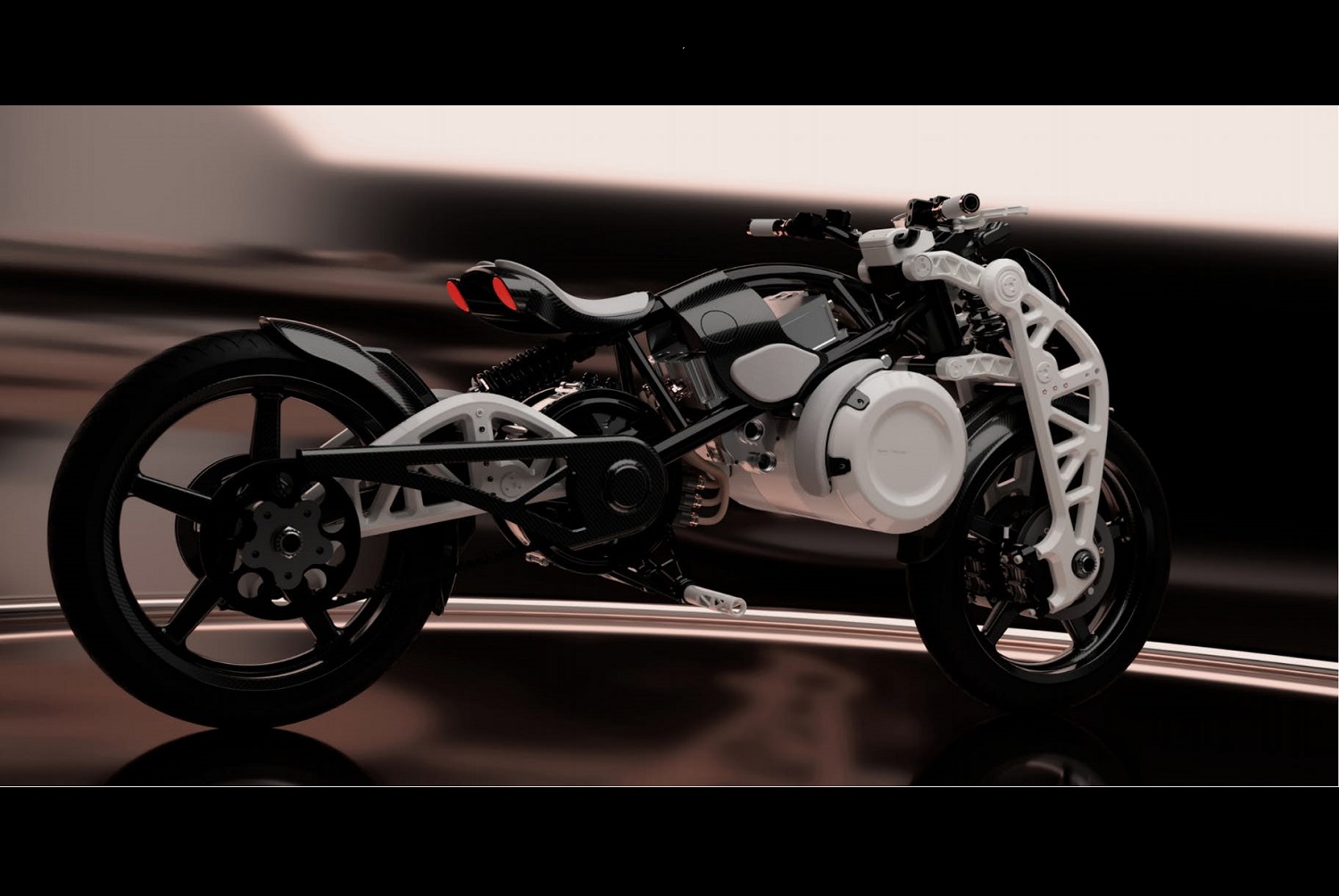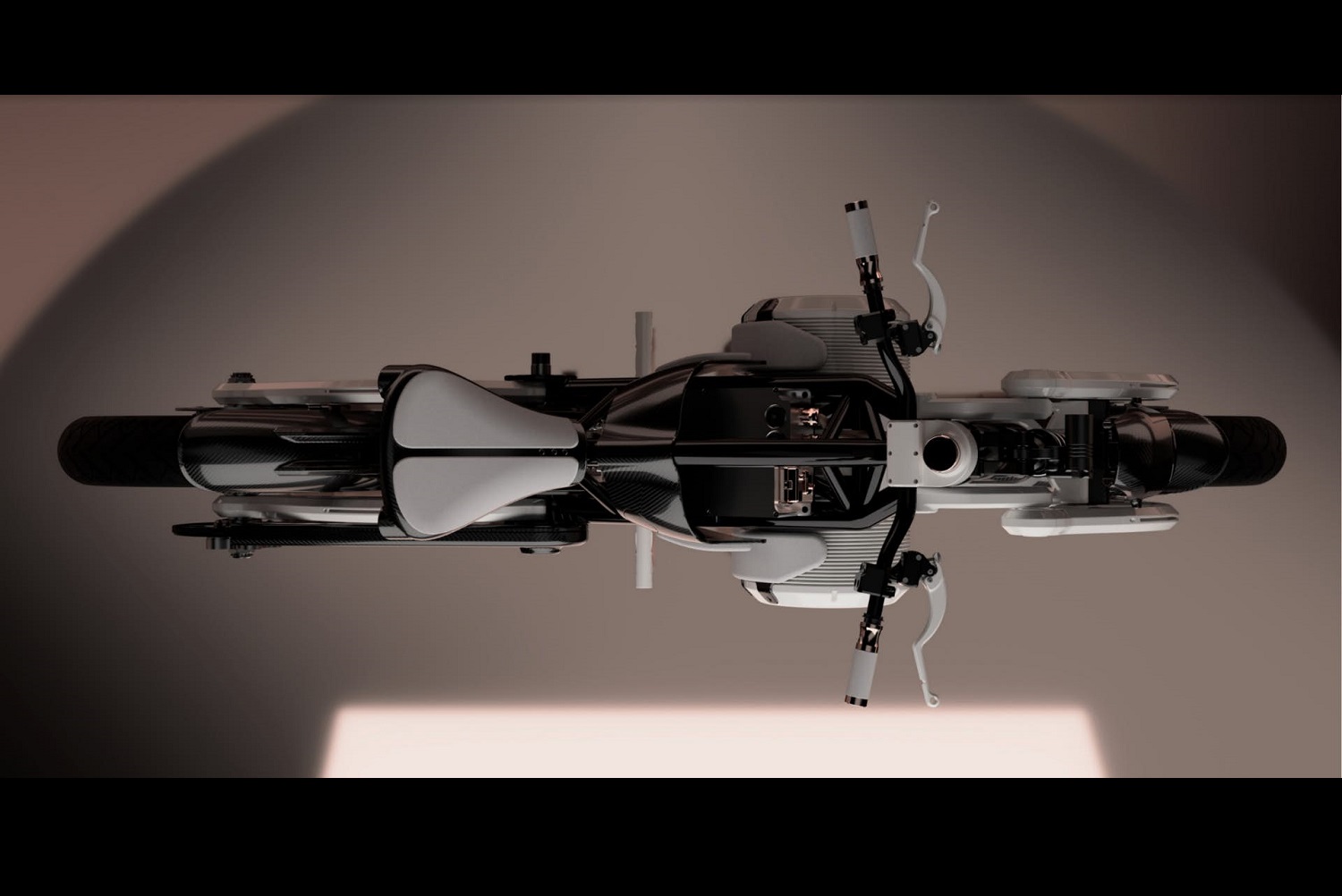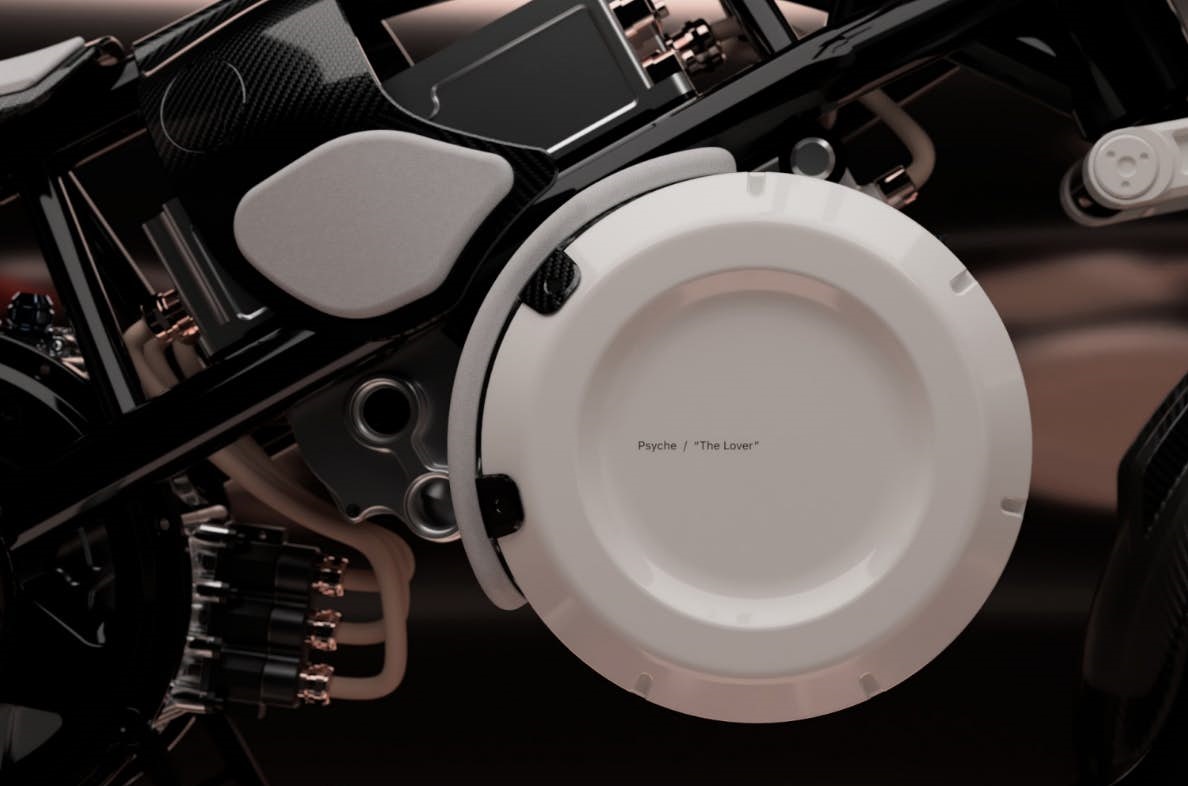Louisiana-based Curtiss Motorcycles positions its two-wheelers at the intersection of transportation and art. Called Psyche, its next new model is a premium, battery-electric motorcycle aimed right at the Harley-Davidson Livewire unveiled during CES 2019. It’s not quite ready for production yet, though.
Every motorcycle company needs to puts a strong emphasis on design, because the parts that make up a bike are all visible. Curtiss takes this commitment to the next level, and the Psyche is no exception. Stylists penned a long, swept-back motorcycle with a fully exposed drivetrain, and structural parts that give it a skeleton-like look. It’s a model you’ll either love or hate. Either way, it’s not for those looking to keep a low profile.
The barrel-shaped battery pack holds enough electricity to deliver 160 miles of range, according to New Atlas. The motor which zaps the rear wheel into motion makes anywhere between 48 and 96 horsepower depending on its configuration. The Psyche is less powerful than the Livewire, but its 375-pound weight makes it 174 pounds lighter than its Harley-badged rival. Theoretically, anyway.
The company needs help to make the Psyche a reality. While Livewire deliveries begin in August 2019, the Psyche is only a concept at this stage, a series of computer-generated renderings that show what Curtiss is technically capable of creating. The company turned to crowdfunding to raise money, and it plans to go public by 2021.
Curtiss Motorcycles predicts the Psyche will cost approximately $30,000, a figure that will put it in the same ballpark as the Harley-Davidson Livewire, and make it one of the most expensive motorcycles on the market. To add context, the Ducati Diavel 1260 starts at approximately $20,000, and Volkswagen charges $27,595 for a new Golf GTI.
The company predicts most examples of the Psyche will be registered in California, and odds are it’s right. The Golden State is the biggest market for electric cars in America, and it’s also the nation’s biggest motorcycle market. It stands to reason electric motorcycles will be more popular there than anywhere else. To that end, Curtiss hinted it could assemble the Psyche — and other electric bikes it will release later on — in a new facility located not far from San Francisco.
Editors' Recommendations
- This electric adventure motorcycle is a magic carpet with a short leash
- Astell&Kern blurs the line between headphone amp and digital audio player
- Volcon Grunt is an electric off-road motorcycle you can ride underwater
- Harley-Davidson’s second electric model will be smaller than the LiveWire
- Damon’s Hypersport shape-shifting motorcycle made me feel like a kid again







